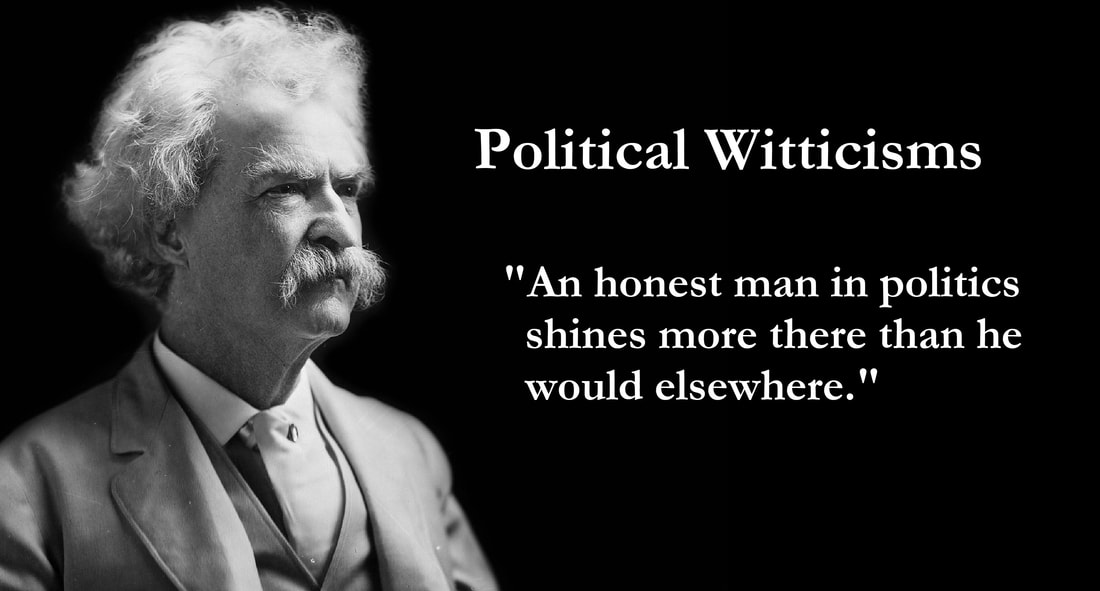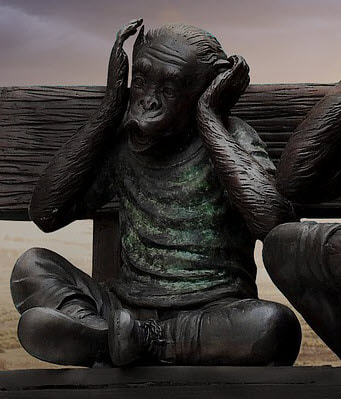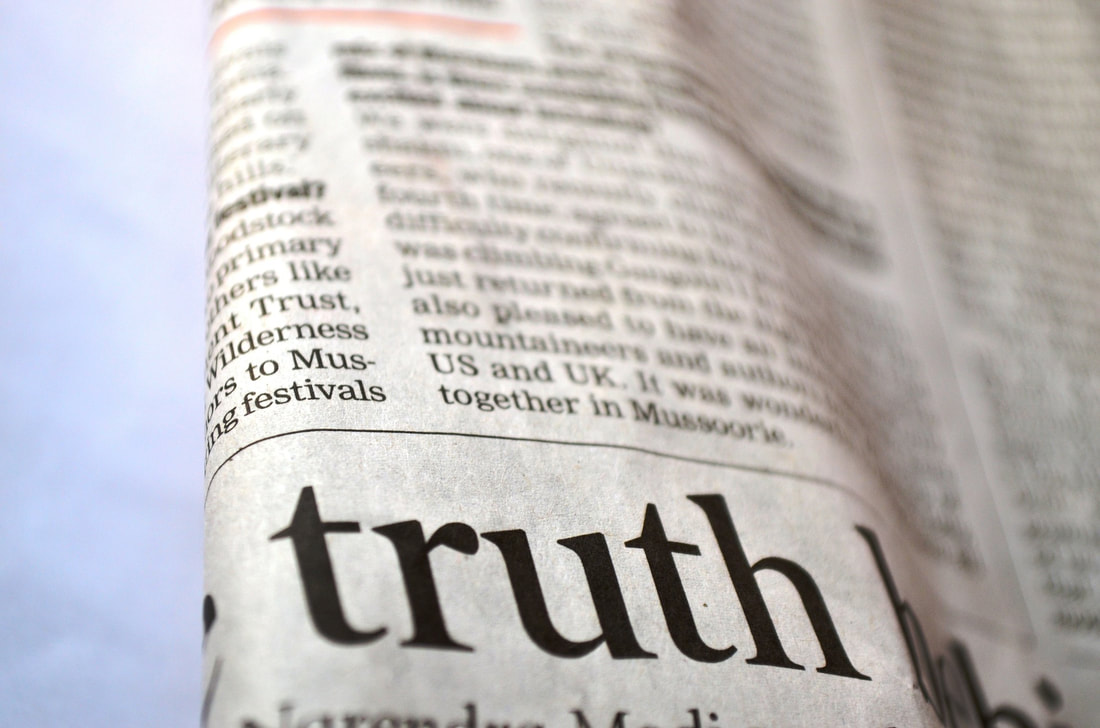Political Insights, Quips and Witticisms
|
|
Date Published: July 19, 2019
Date Modified: June 27, 2024 |
Definition of Political Witticism: See Mark Twain or former Texas Governor, Ann Richards, for a clever, witty, and often biting or ironic remark. Synonyms within the context of this page include: wise crack, one-liner, maxim, saying, proverb or adage.
Political Quips and Witticisms
|
Senator Henry Cabot Lodge
|
"These are the qualities which all men admire and respect and which thus combined we like to think of as peculiarly American. As I enumerate them, I describe Theodore Roosevelt:
|
I adapted this from a quote of J. Kenfield Morley from 1937. He made an observation about "modern travel" that seemed to apply to social media and how it is abused.
|
"Never let the facts interfere with a good story designed to expose a great truth.
"In the telling, how easy it is to make an inch a mile, a breeze a hurricane, or a light episode a tall tale: All to prepare a person's heart to receive a great truth through lips that smile unhesitatingly and ears that are willingly to hear." Peter E. Greulich, February 23, 2022
|
In good story telling, sometimes a breeze becomes a hurricane!
|
I have often wondered how to explain Abraham Lincoln's greatest humorous stories which, while seemingly rarely based on facts, always exposed great truths. Then I read a passage in "The One-Eyed Poacher of Privilege" by Edmund Ware Smith. I modified it for this insight into great storytelling that is almost always a stretch of the imagination.
|
"Proficiency in listening encourages and electrifies the Freedom of Speech."
"Freedom of Speech is most threatened by those who fail to listen." "Woodrow Wilson wrote in The New Freedom that 'A nation is as great, and only as great as her rank and file.' I have to wonder sometimes how 'rank' we can get with each other on social media before we collapse as a society." Peter E. Greulich, July 17, 2019
|
|
The great malady of public life is cowardice.
Most men are not untrue, but they are afraid. Most of the errors of public life, if my observation is to be trusted, come not because men are morally bad, but because they are afraid of somebody. God knows why they should be: it is generally shadows they are afraid of. Woodrow Wilson, American Chronicle
|









